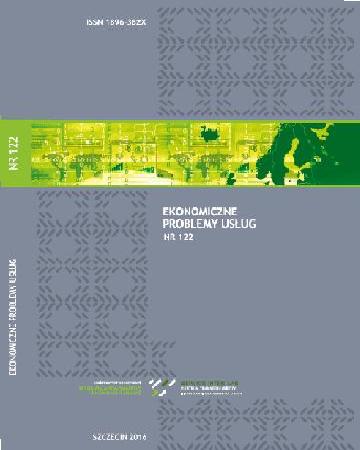
ISSN: 1896-382X
eISSN: 2353-2866
OAI



Issue archive /
nr 117 2015
Rola kapitału społecznego w gospodarce cyfrowej – nowe tendencje rozwojowe
(The role of social capital in digital economy – new trends)
| Authors: |
Krystyna
Polańska
Szkoła Główna Handlowa w Warszawie |
| Keywords: | digital economy social capital cloud computing social network |
| Data publikacji całości: | 2015 |
| Page range: | 10 (749-758) |
Abstract
The aim of this article is to identify sources and nature of social capital in digital economy in the light of recent developments. At the beginning the concepts of digital economy and social capital are defined. Then, on the basis of literature we classify key issues which currently appear to have the most significant impact on the development of digital economy. Three of these developments are discussed in more detail and their implications for social capital are indicated.
Download file
Article file
Bibliography
| 1. | Azua M. (2009), The social factor: Innovate, Ignite, and Win Through Mass Collaboration and Social Networking, IBM Press, Indianapolis. |
| 2. | Bourdieu P. (1986), The Forms of Capital, in: Handbook of theory and research for the sociology of education, ed. John G. Richardson, Greenwood Press, New York. |
| 3. | Burt R.S. (2008), Structural Holes Versus Network Closure as Social Capital (s. 31–56) in: Social capital: theory and research, ed. by N. Lin, K. Cook, R.S. Burt, Transaction Publishers, New Brunswick. |
| 4. | Coleman J.S. (1990), Foundations of Social Theory, Harvard University Press, Cam-bridge. |
| 5. | EUROSTAT (2015), http://appsso.eurostat.ec.europa.eu/nui/show.do?dataset=isoc_cicce_use&lang=en. |
| 6. | Fukuyama F. (1997), Zaufanie. Kapitał społeczny a droga do dobrobytu, WN PWN, Warszawa–Wrocław. |
| 7. | Ng I.C.L. (2014), Creating New Markets in the Digital Economy, University Printing House, Cambridge. |
| 8. | OECD (2014), Measuring the Digital Economy: A New Perspective, OECD Publishing. http://dx.doi.org/10.1787/9789264221796-en [19.12.2014]. |
| 9. | Papińska-Kacperek J., Polańska K. (2015), Inicjatywy Open Government Data, „Roczniki Kolegium Analiz Ekonomicznych”, w druku. |
| 10. | Polańska K. (2013a), New trends in the electronic economy, „Nierówności społeczne a wzrost gospodarczy”, Rzeszów, Zeszyt 36, s. 150–160. |
| 11. | Polańska K. (2013b), Sieci społecznościowe. Wybrane zagadnienia ekonomiczno- |
| 12. | -społeczne, Oficyna Wydawnicza SGH, Warszawa. |
| 13. | Putnam R.D. (1995), Bowling Alone: America’s Declining Social Capital, „Journal of Democracy”, Vol. 6, Issue 1, s. 65–78. |
| 14. | Quan-Haase A., Wellman B. (2004), How does the Internet affect social capital?, in: Social Capital and Information Technology, ed. by Marleen Huysman, Volker Wulf, The MIT Press, Cambridge. |
| 15. | Sobczak A., Kulisiewicz T. (2014), Analiza rozwiązań technologicznych pomocnych przy budowie Otwartego Rządu i ponownym wykorzystaniu informacji publicznej. Jak zacząć?, Ośrodek Studiów nad Cyfrowym Państwem, Łódź. |
| 16. | Tapscott D. (1998), Gospodarka cyfrowa. Nadzieje i niepokoje Ery Świadomości Systemowej, Business Press, Warszawa. |